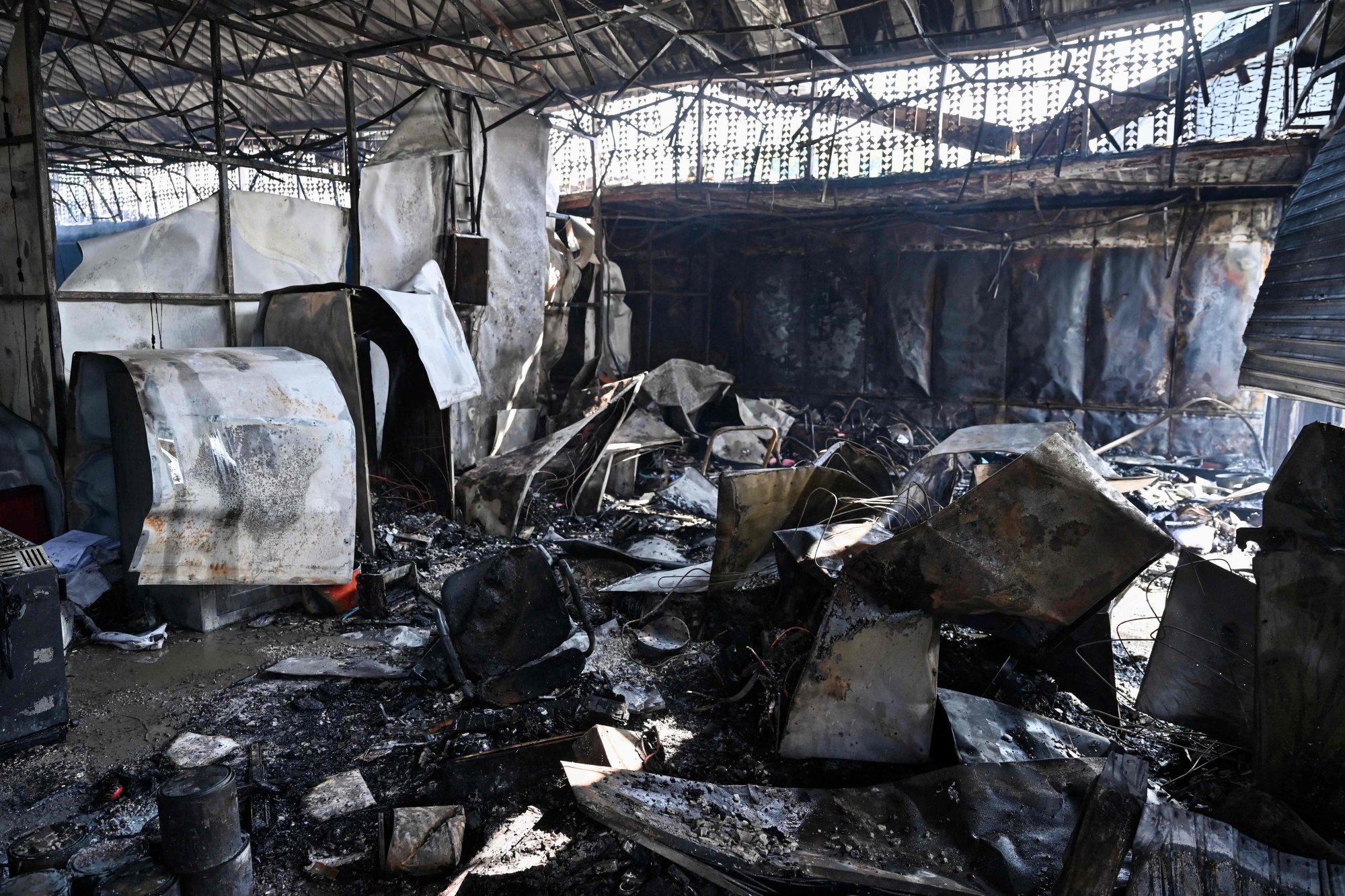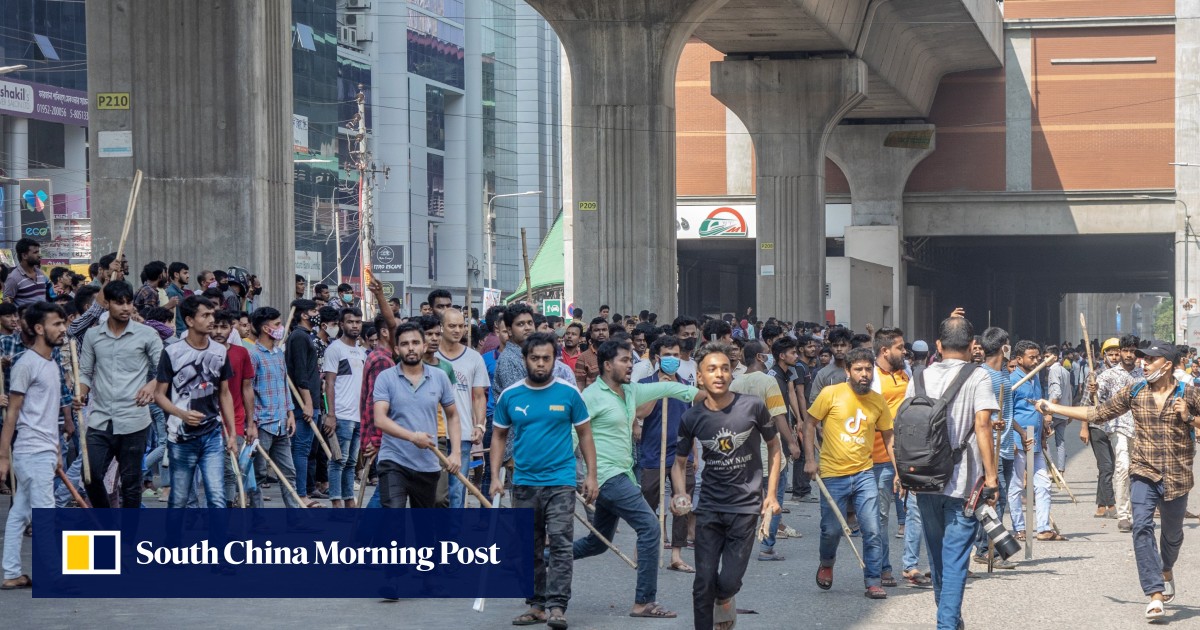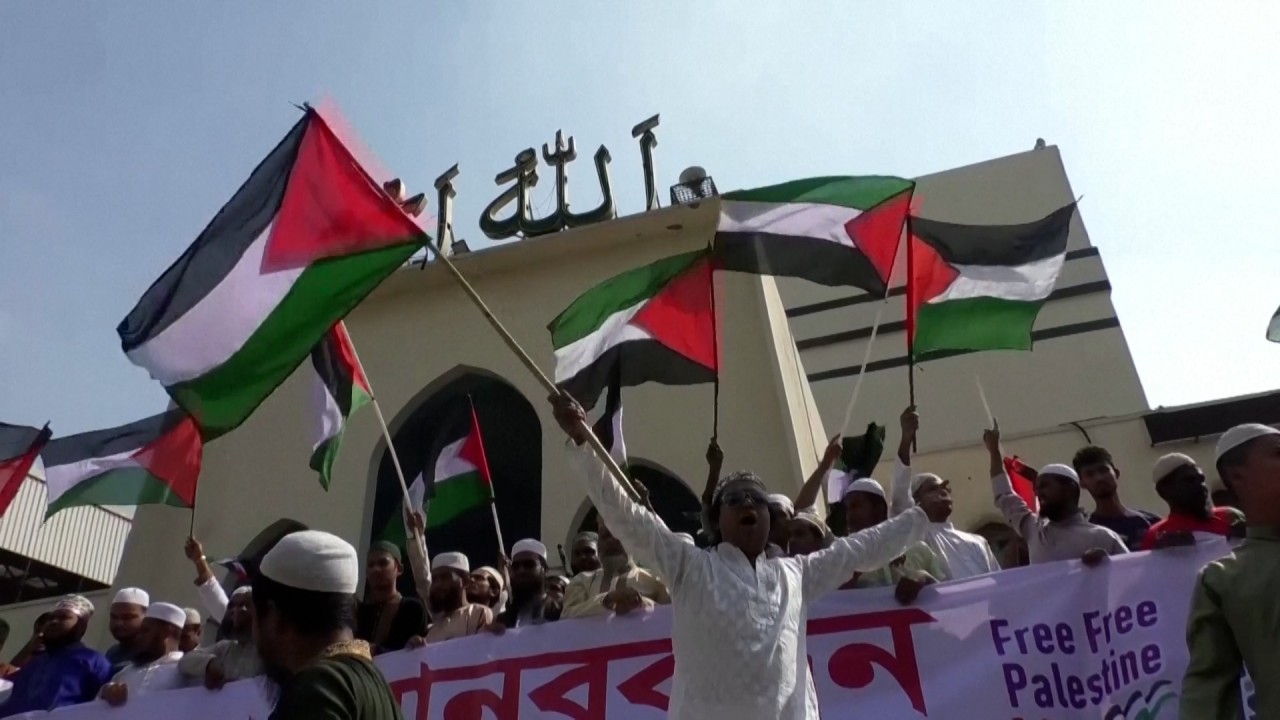Bangladeshi police clashed on Tuesday with thousands of garment workers demanding fair wages for the clothing they make for major Western brands, a day after similar protests left at least two people dead.
Police said tens of thousands of workers at dozens of factories had launched strikes in Ashulia and Gazipur, the country’s largest industrial city, with authorities firing tear gas and rubber bullets as crowds smashed up factories and blocked roads.
Gazipur alone is home to more than a thousand plants that make clothing for brands such as H&M and Gap.
“Workers hit the streets as their salaries can no longer cover rising food expenses,” said Al Kamran, a senior garment union leader in Ashulia.
Rohingya problems deepen as violence surges in Bangladesh refugee camps
Rohingya problems deepen as violence surges in Bangladesh refugee camps
But conditions are dire for many of its four million apparel workers.
“Some 15,000 of the workers joined protests for a wage hike at separate places in Ashulia,” said Mahmud Naser, deputy police chief of the Ashulia industrial area.
Union leader Kamran disputed those figures, reporting some 50,000 workers had downed tools in Ashulia alone, with soaring prices a key driver.

The cost of some basic foodstuffs, like potatoes and onions, had more than doubled since last year, Kamran said.
“House rents have also spiked. The only thing that has not increased is salaries.”
Taslima Akter, the head of the Garment Sramik Samhati union, has said the compensation manufacturers are offering is “less than what a worker got in 2017” once inflation and currency depreciation were taken into account.
Police said protesters had set fire to tyres, broken windows at factories and blocked a key highway connecting the industrial area with the capital Dhaka.
Officers responded by firing “rubber bullets and tear gas”, said Naser, the deputy chief in Ashulia, adding there were no reports of injuries.
Sri Lanka garment workers brace for lay-offs as demand slumps amid downturn
Sri Lanka garment workers brace for lay-offs as demand slumps amid downturn
The protests erupted early last week, but violence escalated on Monday when tens of thousands left their shifts and staged protests in Gazipur, where a six-storey factory was torched by workers, leading to the death of one labourer.
Another worker was killed during clashes between police and protesters.
Bangladesh is home to around 3,500 garment factories making clothing for some of the world’s largest retailers and brands, but the basic monthly wage for workers is just 8,300 taka (US$75).
Unions said the workers vented their anger on the streets after the powerful manufacturers’ association offered a 25 per cent raise, ignoring demands for a new monthly minimum basic wage of 23,000 taka – nearly a threefold increase.
Her government set up a panel this year to set a new minimum wage.
Unions say that garment factory owners – who include ministers and influential lawmakers – have played a role in fixing the minimum wage during past negotiations.


